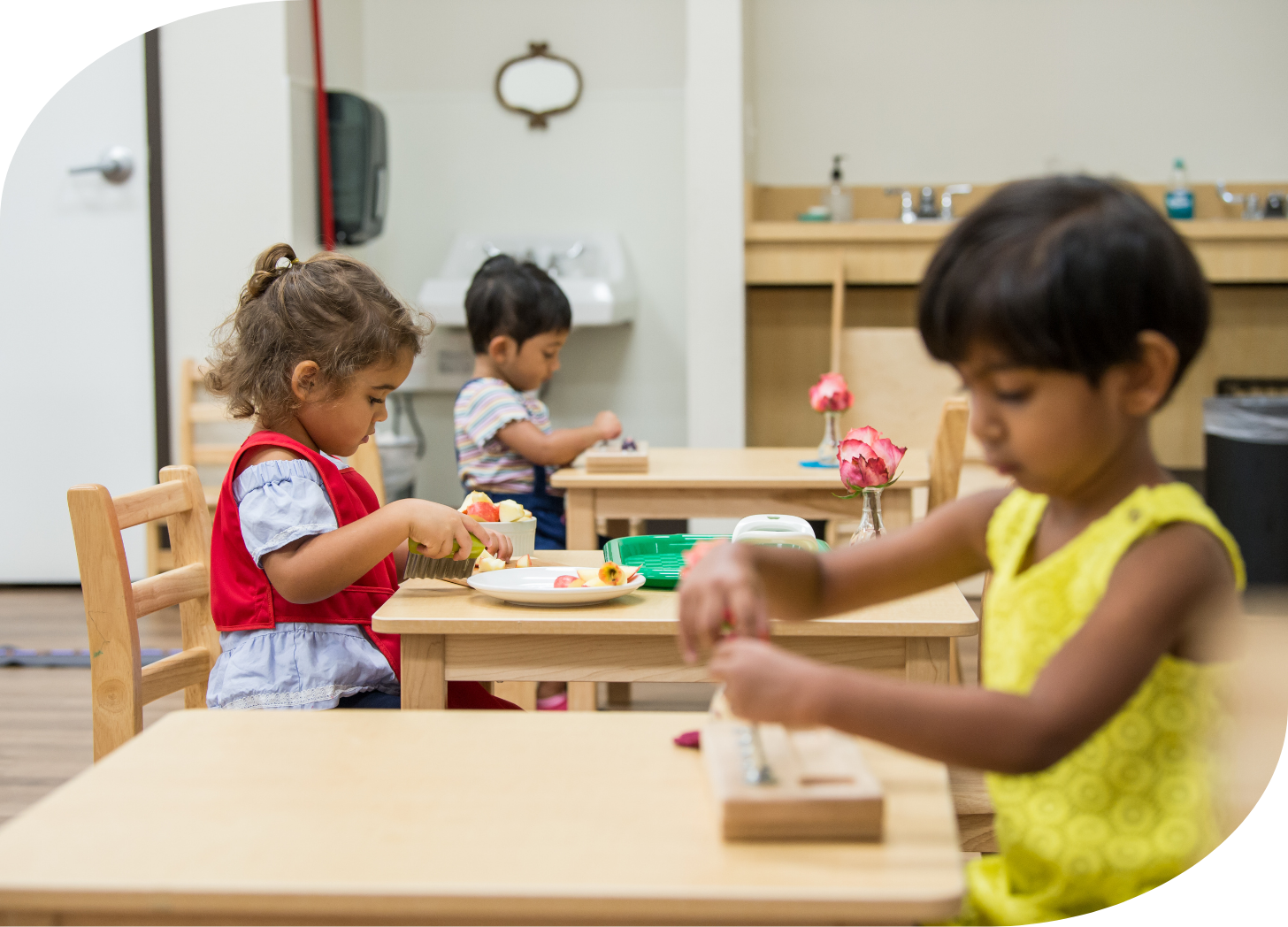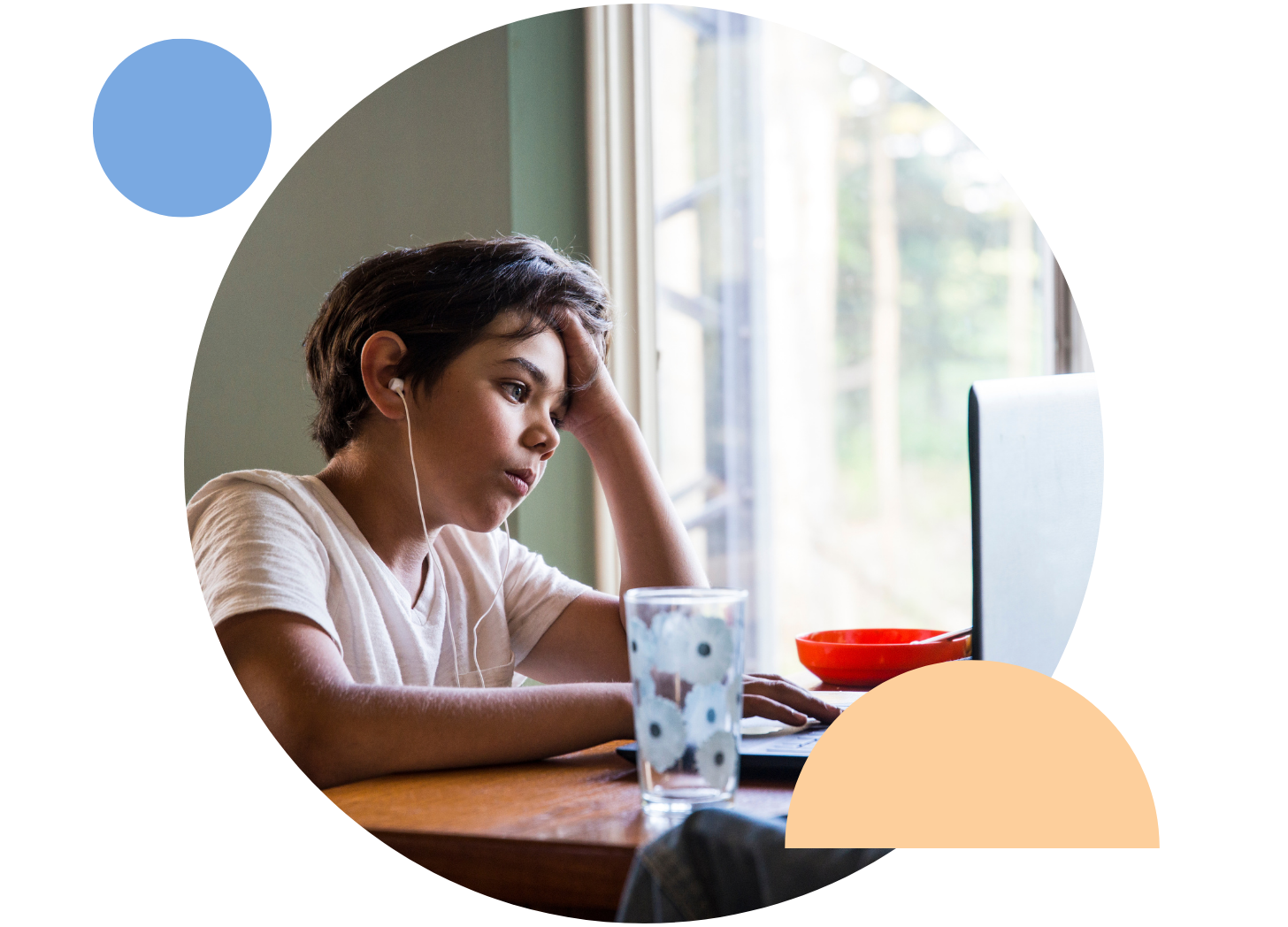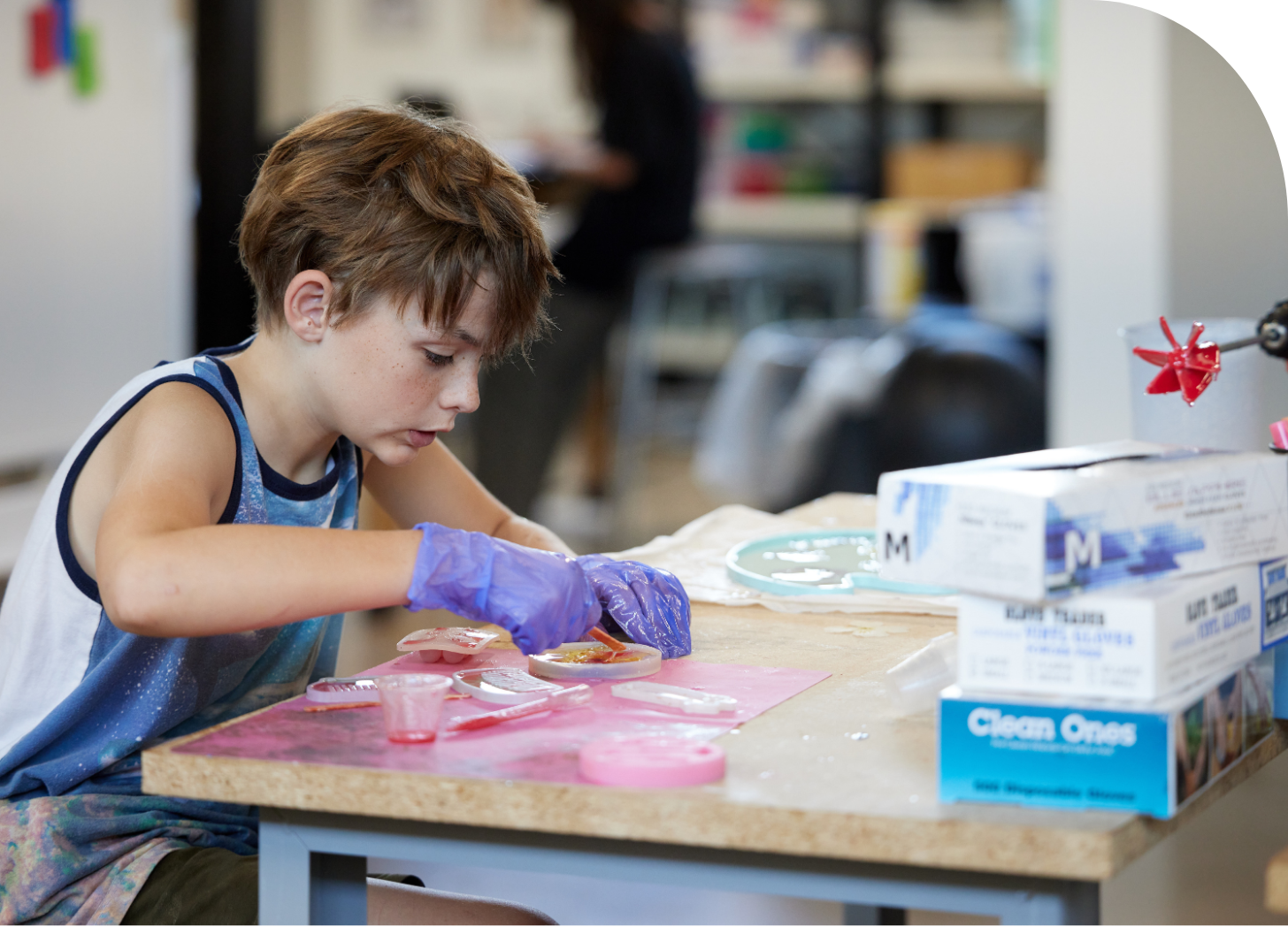As parents, we see it all the time.
Our children suddenly become fixated on something — painting a picture, solving a problem, reading a complex book — and lose interest just as quickly.
They say they want to learn how to play an instrument, but after sinking hundreds of dollars into lessons and equipment, they get bored and want to move on.
Their focus feels tenuous.
And distractions are readily available.
The epidemic of distraction
Our children are facing unprecedented numbers of attention-grabbers. We all know this.
They hold a world of knowledge in the palms of their hands — and it’s coming at them in short-form bursts.
Teachers have been planning their lessons in ten-minute blocks. Any longer and students can’t keep up.
The distraction epidemic is so widespread that experts now call it “TikTok brain.”
That’s a high-tech way of saying that we no longer have the attention span of a goldfish. Now, it’s even shorter.
The majority of teens use TikTok and YouTube daily, and 19% of teens report being on social media almost constantly.
Technology can be an incredible gift to our kids — but not when chronic distraction is actively harming their development.
Why focus matters
Focus is what enables us to learn, reason, solve problems, and make decisions.
It’s a key factor for success in school — and into adulthood.
But even before our children are old enough to attend school, focus is vital to their development.
“The small child that can focus for ten minutes on peeling an orange becomes the adult who can manage the seeming infinity of less pleasant chores related to, say, hosting Thanksgiving dinner,” says Matt Bateman, Executive Director of Montessorium.

Maria Montessori, an Italian physician and educator, noted in her observations of children that:
Infants focus on their parents’ mouths to learn how to speak.
Toddlers focus on the daily habits of their family members to replicate them.
Children focus on small, obscure details to better understand the world.
Focus is how our kids learn. It’s how their intellect, habits, and curiosity take shape.
And they’re hardwired to do this from the moment they’re born.
“If you set up the conditions that are favorable to child development, [focus] is a phenomenon that emerges in children,” says Rebecca Girn, GC & Chief Programs Officer at Higher Ground Education.
In other words, if we properly prepare their environment, children will build concentration without any coaxing.
It’s when we introduce a distracting environment that this developmental process stalls.
Effortful focus first
This isn’t to say that all screen time is a useless distraction. Technology allows our children to:
Video chat with their grandparents
Watch educational and how-to videos
Research topics of interest to them
These are examples of effortful, active focus with screens (as opposed to the zoned out, passive focus we often see from scrolling on social media).
Passive, entertainment-based focus still holds an important place in life — as a source of relaxation — but it’s secondary.
We want our children to learn to enjoy effortful focus and use it as their primary mode of interacting with the world.
In other words, we can’t only think about helping our kids to focus.
We need to encourage effortful focus first, whether our kids use screens or not.
How to raise effortful, actively focused kids
We can’t force kids to be Luddites — not only because it’s unlikely to go over well, but because learning to use technology wisely is a skill our kids will need to master to be successful adults.
So, rather than remove the distraction, let’s encourage that effortful, active focus.
That might look like:
Creating a dedicated, no-phone study space for your teen (like a desk outside their bedroom)
Allowing your kid to be bored (by having them stop and take in their surroundings instead of filling the void for them)
Putting on a two-hour movie for your toddler (rather than letting them watch a series of short videos)
And then, once our kids are in the zone, our most important responsibility is to avoid interrupting them.
It can be tempting to rush our children, asking them if they need any support.
But when they’re focusing, the most helpful thing we can provide our children is space.
Their quiet minds have the potential to channel tremendous creative and problem-solving energy — if we let them.












While I agree with everything in this post, I think it's also important to point out that neurodifferences can cause differences in attention. Parents should understand that these tips won't "solve" a child's attentional challenges if the child truly has ADHD or other neurodivergence.
I loved this!
I'm doing some research about children's focus as well to write in my daily parenting newsletter and I found 2 great papers about the topic:
• "Digital Screen Media and Cognitive Development".
In short, it says the role of focused attention in early childhood is crucial for cognitive development, including language, literacy, and social-emotional development. However, the excessive use of digital media has been shown to have a mixed impact on these developmental areas, necessitating a balance between screen time and other developmental activities
The other paper
• "A Review of Evidence on the Role of Digital Technology in Shaping Attention and Cognitive Control in Children"
The paper suggests that certain types of digital media, like video games, can enhance visual-spatial skills, problem-solving skills, and other cognitive functions, indicating that not all screen time is detrimental if focused and educational.